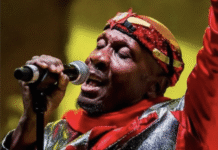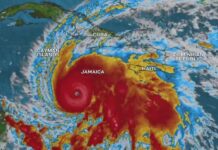
OPINION
by
Tara J. Wilkinson
Listening to First Lady Michelle Obama’s Democratic National Convention Speech, it hit home that although we so often think of ourselves as different, and we are in many ways, the issues that we face every day in the Caribbean are global.
Living in the Caribbean, we often discuss the unequal power relations between developing and developed countries; particularly the relationship between the United States and the Caribbean. Whether it’s issues of the perceived U.S. media dominance, conflicts around tax havens or the on-going discussions about preference for imported commodities over local ones, these issues are raised in casual conversations, on political platforms and educational agendas.
Caribbean people are always conscious of these issues, but in Michelle Obama’s speech, there was another story; a story of the common obstacles women face regardless of our invented positions of ‘developed’ or ‘developing’ countries. The stories about the lives of single mothers, the fight for a woman’s right to control her body and earn fair wages, the struggle for access to quality health care and the plight of working-class families and small businesses to keep afloat in a damaged economy all resonate with Caribbean populations.
In Mrs. Obama’s speech, she talks about how President Obama was raised by a single mother who struggled to pay the bills, and by grandparents who stepped in to offer support when she needed help. In the Caribbean, more than 60% of households are female-headed. While female-headed households are largely considered a vulnerable and at-risk of poverty group, these experiences also show that these women have made amazing sacrifices to improve their lives and the lives of their children. Extended family structures are also prevalent in the Caribbean with many aunts, uncles and grandparents acting as support networks for families.
Another issue raised by the first lady is a woman’s right to make choices about her body free of political and religious intervention. This issue is particularly pertinent in light of the worldwide attention on the teenager who died in the Dominican Republic after an abortion ban after being denied treatment for leukemia due to a pregnancy. The tragic consequences of anti-abortion laws are endless but only a few stories attract media attention.
The same can be true for wage-gap issues. A woman’s right to earn fair wages has been a long held discussion by Caribbean feminists. Mrs. Obama’s comments about President Obama’s support for the Lilly Ledbetter Fair Pay Act to help women get equal pay for equal work, reminds us of non-discrimination clauses that we subscribe to in the Caribbean, but which falter at the level of implementation. For example, while women are better educated than men in Barbados and Jamaica, men out earn women by between 14 and 27 percent in Barbados and between 8 and 17 percent in Jamaica depending on what factors you control for in analyzing the wage gap.
Michelle Obama’s DNC speech drives home the fact that women face these issues together. While some countries are better positioned and have greater access to economic and social capital, the issues impacting women are common. Our collective leaders can inspire and lobby for change like Mrs. Obama, but it is up to everyday women to make a difference in small ways — every day. The continued fight for women’s equality knows no boundaries, geographical or otherwise.
Like The Burton Wire on Facebook. Follow us on Twitter@TheBurtonWire.








